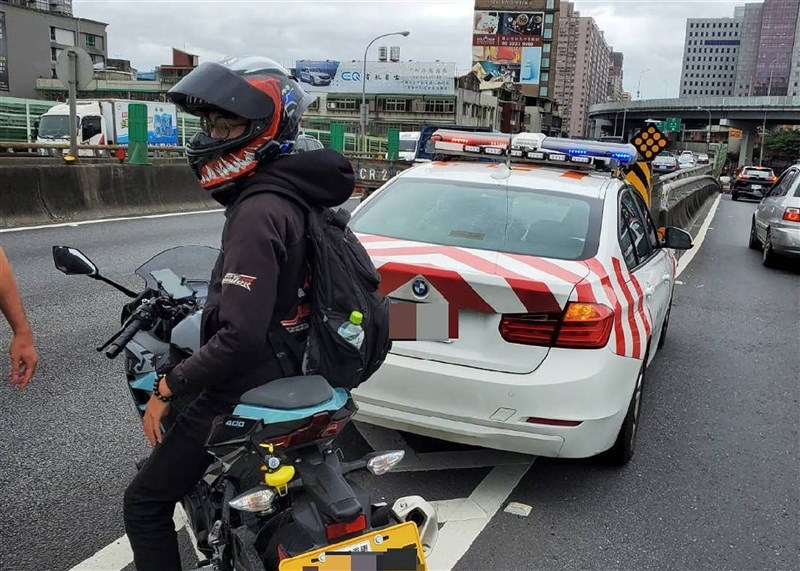In a survey conducted by Taiwan’s Freeway Bureau in March 2025, 60% of respondents expressed opposition to lifting the long-standing ban on heavy motorcycles (250cc and above) on national freeways. Despite more than a decade of debate and regulatory amendments, public skepticism remains strong, mainly due to perceptions of reckless rider behavior and road safety concerns.
🚨 Public Concern Over Rider Behavior:
According to the Freeway Bureau’s findings, the majority of respondents said they feel anxious when motorcycles weave between cars, speed, or overtake unpredictably. These behaviors not only increase the risk of accidents but also erode trust among automobile drivers, who fear that the presence of motorcycles on fast-moving highways could turn minor incidents into deadly collisions.
The perception that motorcyclists often disregard traffic rules also weighed heavily in public opinion. Critics argue that even a minority of reckless riders create a negative image for the community at large, undermining advocacy efforts for freeway access.
📊 About the Survey:
- Timeframe: March 11–21, 2025
- Sample Size: 2,292 landline and mobile respondents
- Confidence Level: 95%
- Margin of Error: ±2%
This was the 12th time the Bureau conducted a public survey on this issue, with results consistent over the years, reflecting entrenched concerns rather than shifting public sentiment.
🛣️ Conditional Access Gaining Limited Support:
Despite the overall opposition, a minority supports conditional freeway access for heavy motorcycles. The most commonly proposed conditions included:
- Weekday-only access (to avoid weekend traffic spikes)
- Restricting access to certain freeways only, particularly:
- National Freeway No. 6 (linking Wufeng, Taichung to Puli, Nantou)
- National Freeway No. 8 (short east-west route)
- Sections of National Freeway No. 3 (Southern Cross-Island Highway)
The Freeway Bureau has stated that trial access would only proceed if a broad societal consensus were reached and if local governments and law enforcement backed the initiative. So far, such consensus has not materialized.
🛵 Legal Background and Policy Stagnation:
Taiwan amended the Road Traffic Management and Penalty Act in 2011 to conditionally permit heavy motorcycles on freeways, theoretically paving the way for pilot programs. However, despite advocacy from motorcycle rights groups and repeated policy proposals, no official freeway trials have been launched.
Motorcycle rights organizations, meanwhile, have protested and held events advocating for the same road privileges as cars. They argue that motorcycles in other countries — such as Japan and parts of the U.S. — use freeways safely and efficiently, and that Taiwan should modernize its traffic infrastructure and laws accordingly.
Proponents also highlight that many heavy motorcycles are used responsibly for long-distance travel or commuting and that blanket bans penalize law-abiding riders alongside the reckless minority.
🌐 Broader Policy Implications:
The issue has become symbolic of broader challenges in Taiwan’s transportation policy:
- Balancing road safety with equitable road access
- Modernizing transportation infrastructure to accommodate more vehicle types
- Aligning domestic road policies with global norms
Experts suggest that Taiwan might consider gradual pilot programs, accompanied by enhanced rider education, traffic law enforcement, and smart freeway infrastructure (such as automated lane monitoring and AI-driven incident alerts) to bridge the gap between public concern and policy reform.
❓ FAQs
Why are heavy motorcycles banned on Taiwan’s national freeways?
Heavy motorcycles are banned due to long-standing safety concerns, particularly related to rider behavior such as weaving, speeding, and sudden lane changes.
What is National Freeway No. 6 and why is it seen as a possible test route?
Freeway No. 6 is a less congested, east-west route between Taichung and Nantou. It’s considered safer for testing due to lighter traffic and simpler interchanges.
Have other countries allowed motorcycles on freeways successfully?
Yes, many countries including the U.S., Japan, and members of the EU allow motorcycles on highways. They enforce traffic rules strictly and ensure rider education.
Will there be any trial periods for heavy motorcycle access in Taiwan?
As of now, no official trial has been approved. Authorities require widespread support from the public, local governments, and police forces before proceeding.
What safety precautions are being suggested for potential trials?
Ideas include restricting access to weekdays, specific freeway sections, speed limits for motorcycles, helmet camera mandates, and increased police surveillance.


